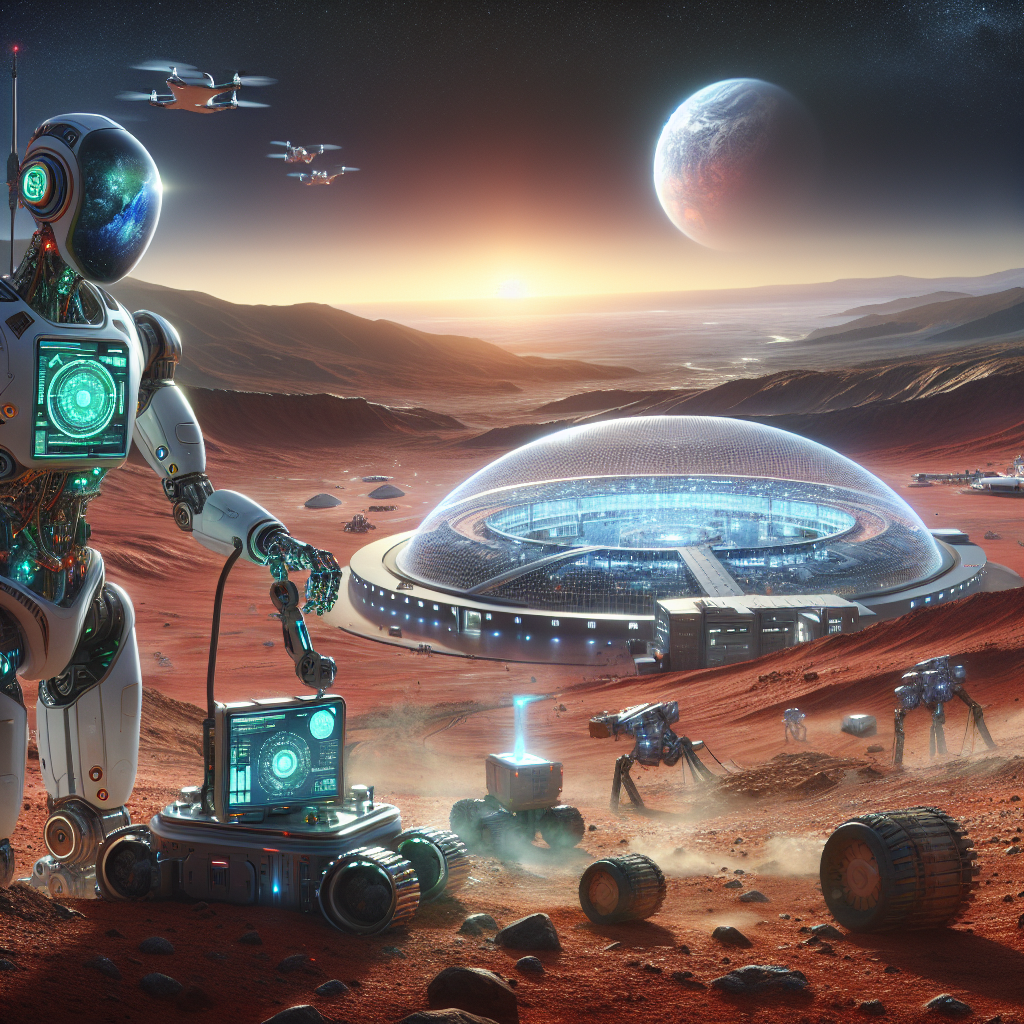AI Powering Mars Colonization Strategy
In 1969, humanity set foot on the Moon—not just to explore, but as a signal to ourselves that we could reach beyond Earth. Today, the next great leap is Mars, with artificial intelligence positioned not just as a tool, but as the cornerstone of strategy. As we shape Earth’s backup plan in case of planetary catastrophe, it’s AI powering Mars colonization strategy that’s opening the door to sustainable extraterrestrial living.
The Martian Frontier Requires Intelligent Systems
Unlike the Moon, Mars presents unique challenges: longer distances, harsh atmospheric conditions, and a significant communication delay with Earth. For these reasons, human-led missions need intelligent, autonomous systems to thrive. AI isn’t just an assistant; it’s the architect of the infrastructure, life-support ecosystems, and even human behavior management in off-Earth colonies.
Why AI Is Essential for Mars Colonies
AI’s integration into every level of Mars colonization isn’t just beneficial—it’s critical. Here’s how AI is powering Mars colonization strategy:
- Autonomous Construction: AI-powered robots can build habitats before humans arrive, using local materials like regolith to construct protective shelters.
- Health Monitoring: AI systems continuously monitor astronauts’ physical and mental health, offering predictive analytics for early interventions.
- Environmental Regulation: Smart systems manage air, water, and temperature conditions within habitats, adjusting in real-time to maintain stability.
- Navigation and Transport: AI enables autonomous rovers and drones to map terrain, deliver cargo, and scout for resources like water or minerals.
From Earth Simulations to Martian Realities
Many of the AI solutions intended for Mars are being tested here on Earth in Mars-analog simulations, such as NASA’s HI-SEAS program or the Mars Dune Alpha habitat. These controlled environments train AI systems to respond to scenarios like equipment failure, emotional stress, and emergency medicine — ensuring readiness for real deployments.
Moreover, companies like SpaceX are already leveraging machine learning algorithms to enhance rocket precision and cargo logistics, both essential for consistent missions to Mars.
Decision-Making Without Earth
On Mars, communication lags of up to 22 minutes mean immediate decisions must happen locally. AI acts as the de facto mission control, making critical choices about power management, emergency response, and even resource allocation without waiting for Earth-based input. AI’s real-time adaptability could determine the survival or failure of an early Martian outpost.
Conclusion: Earth’s Safety Net Relies on Smart Machines
With climate threats, overpopulation, and unpredictable global challenges mounting, expanding humanity’s frontier is increasingly seen as a necessity—not a luxury. But colonizing Mars without sophisticated AI would be like navigating the ocean with no compass. It’s AI powering Mars colonization strategy that transforms science fiction into actionable planetary insurance. It won’t replace humans, but it will ensure we’re not alone in making survival possible on a foreign world.

